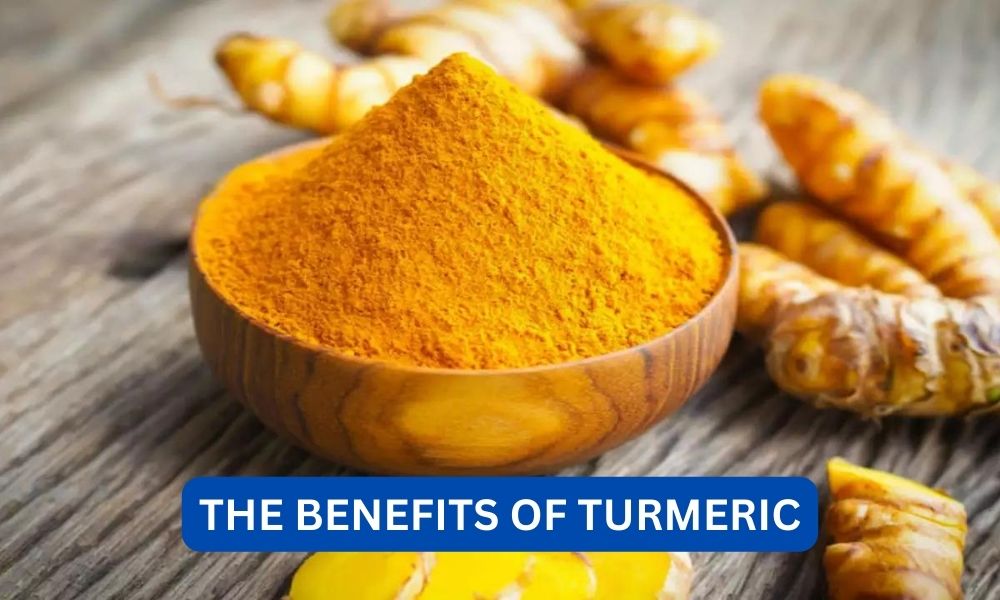Turmeric, also known as Curcuma longa, is a bright yellow spice commonly used in Indian and Southeast Asian cuisine. It has been used for centuries in traditional medicine and has gained popularity in recent years for its numerous health benefits. This powerful spice is not only delicious but also packed with essential nutrients and compounds that can improve overall health and well-being. In this article, we will delve into the many benefits of turmeric and how it can positively impact our lives.
Contents
The Health Benefits of Turmeric
Turmeric has been extensively studied for its potential health benefits, and the results have been impressive. Here are some of the most notable benefits of incorporating turmeric into your diet:
- Anti-inflammatory properties: Chronic inflammation is linked to many health conditions, including heart disease, cancer, and Alzheimer’s. Curcumin in turmeric has been found to be a potent anti-inflammatory agent, reducing inflammation and providing relief from pain and discomfort.
- Powerful antioxidant: Oxidative damage caused by free radicals is a major contributor to aging and many chronic diseases. Turmeric is rich in antioxidants that neutralize free radicals and protect the body from oxidative stress.
- Boosts brain function: Curcumin has been found to increase levels of brain-derived neurotrophic factor (BDNF), a growth hormone that promotes the growth of new neurons and improves brain function. This can help prevent age-related brain diseases and improve memory and cognitive function.
- May lower the risk of heart disease: Heart disease is the leading cause of death globally, and several risk factors contribute to its development. Studies have shown that curcumin can improve the function of the endothelium, the lining of blood vessels, and reduce inflammation and oxidative stress, all of which can lower the risk of heart disease.
- May prevent and treat cancer: Curcumin has been found to have anti-cancer properties and has shown promising results in preventing and treating various types of cancer. It works by inhibiting the growth of cancer cells and reducing the formation of new blood vessels in tumors.
- May help manage diabetes: Curcumin has been found to improve insulin sensitivity and reduce blood sugar levels, making it beneficial for people with diabetes. It can also help prevent complications associated with diabetes, such as nerve damage and kidney disease.
- Improves skin health: Turmeric has been used in traditional medicine to treat various skin conditions, and modern research has confirmed its effectiveness. Its anti-inflammatory and antioxidant properties can help improve skin health, reduce acne, and slow down the signs of aging.
How to Incorporate Turmeric into Your Diet
Now that we know about the many benefits of turmeric, the next question is, how can we incorporate it into our diet? Here are some easy and delicious ways to add turmeric to your meals:
Read:What are the health benefits of spirulina?- Golden milk: This traditional Ayurvedic drink is made by mixing turmeric with milk, honey, and spices like cinnamon and ginger. It is a soothing and delicious way to reap the benefits of turmeric.
- Turmeric tea: Similar to golden milk, turmeric tea is made by steeping turmeric in hot water and adding honey and lemon for flavor. It is a refreshing and healthy alternative to regular tea or coffee.
- Curry dishes: Turmeric is a staple ingredient in many Indian and Southeast Asian curry dishes. You can add it to your homemade curries or use it as a seasoning for roasted vegetables or meats.
- Smoothies: You can add a teaspoon of turmeric powder to your morning smoothie for an extra boost of nutrients and antioxidants.
- Turmeric supplements: If you don’t enjoy the taste of turmeric or find it challenging to incorporate it into your diet, you can opt for turmeric supplements. These are available in capsule or powder form and can provide the same health benefits as consuming turmeric in food.
Precautions and Potential Side Effects
While turmeric is generally safe for consumption, there are a few precautions to keep in mind:
Read:What are the benefits of oat milk- Allergies: Some people may be allergic to turmeric, so it is essential to do a patch test before consuming it in large quantities.
- Interactions with medication: Turmeric may interact with certain medications, such as blood thinners and diabetes drugs. If you are taking any medication, it is best to consult your doctor before adding turmeric to your diet.
- Pregnancy and breastfeeding: While turmeric is generally safe for pregnant and breastfeeding women, it is best to consult a doctor before consuming it in large quantities.
Real-Life Examples of the Benefits of Turmeric
The benefits of turmeric are not just limited to scientific studies; there are many real-life examples of people who have experienced its positive effects. Here are a few examples:
- Relief from arthritis pain: A study published in the Journal of Medicinal Food found that turmeric extract was effective in reducing pain and inflammation in patients with osteoarthritis. Many people with arthritis have reported significant relief from pain and stiffness after incorporating turmeric into their diet.
- Improved skin health: Many people have reported clearer and healthier skin after consuming turmeric regularly. One study found that turmeric extract was effective in reducing acne and improving skin health in patients with acne-prone skin.
- Reduced symptoms of depression: A study published in the Journal of Affective Disorders found that curcumin was as effective as Prozac in treating symptoms of depression. Many people have reported feeling less anxious and more positive after incorporating turmeric into their diet.
The Bottom Line:
Read:What are the benefits of icing your face?Turmeric is a powerful spice with numerous health benefits. Its active compound, curcumin, has potent anti-inflammatory and antioxidant properties that can improve overall health and prevent chronic diseases. By incorporating turmeric into your diet, you can reap its many benefits and improve your overall well-being. However, it is essential to consult a doctor before making any significant changes to your diet, especially if you are taking any medication. With its delicious taste and impressive health benefits, turmeric is a spice that everyone should consider adding to their diet.
Summary:
Turmeric is a powerful spice with numerous health benefits. Its active compound, curcumin, has potent anti-inflammatory and antioxidant properties that can improve overall health and prevent chronic diseases. By incorporating turmeric into your diet, you can reap its many benefits and improve your overall well-being. However, it is essential to consult a doctor before making any significant changes to your diet, especially if you are taking any medication. With its delicious taste and impressive health benefits, turmeric is a spice that everyone should consider adding to their diet.









